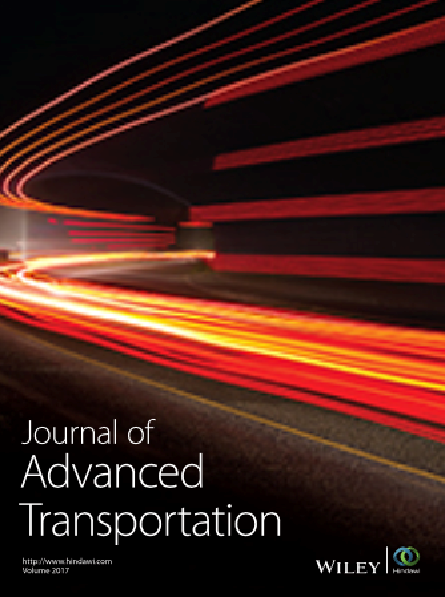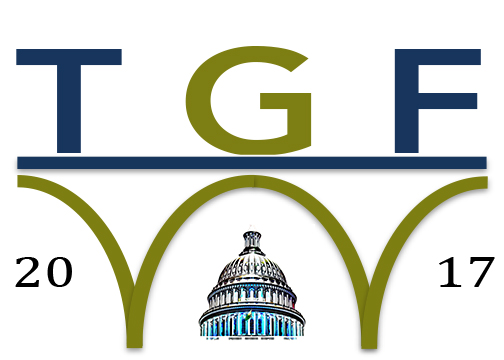Adaptive Cruise Control (ACC) technology, as a precursor of automated vehicle technology, has been available for over two decades and is now adopted in the car models from more than 20 manufacturers. It can be expected that the penetration of ACC vehicles will continue to grow and become very significant, and thus will have profound impacts on the traffic flow. The literature has reported that ACC has the potential to improve traffic flow such as increasing the throughput and improving traffic stability. Notably, most studies that claimed the benefits of ACC on traffic flow were based on simulation outcomes and lacked the empirical ground. To facilitate research and application of ACC and ultimately automated vehicles a webinars series is organized. Please visit The ACC Webinars Series Website for more information.
Category: Uncategorized
Artificial Intelligence for Automated Vehicle Control and Traffic Operations: Challenges and Opportunities
This chapter summarizes the presentations of speakers addressing such issues during the Automated Vehicles Symposium 2020 (AVS20) held virtually on July 27–30, 2020. These speakers participated in the break-out session titled “Artificial Intelligence for Automated Vehicle Control and Traffic Operations: Challenges and Opportunities”. The corresponding discussion and recommendations are presented in terms of the lessons learned and the future research directions to be adopted to benefit from AI in order to develop safer and more efficient connected and automated vehicles (CAV). This session was organized by the Transportation Research Board (TRB) Committee on Traffic Flow Theory and Characteristics (ACP50) and the TRB Committee on Artificial Intelligence and Advanced Computing Applications (AED50). The Chapter is availble at: https://link.springer.com/chapter/10.1007/978-3-030-80063-5_6
AVS 2020 symposium
The Automated Vehicles Symposium (AVS) brings together the brightest minds in the tech and automotive space to discuss the future of mobility. 1,500+ thought leaders from around the world convene to address complex technology, operations, and policy issues that will move us toward safe and reliable automated mobility. The Symposium is produced in partnership with the Association for Unmanned Vehicle Systems International (AUVSI) and the Transportation Research Board (TRB). The AVS 2020 was virtually held from 27 to 30 July 2020.
2021 Transportation Research Board Annual Meeting Workshop
TRB 2021 Workshop:
A workshop titled "From Traffic Flow Modeling of Connected and Automated Vehicles to Transportation Guidelines, Policies, and Specifications: Lessons Learned and Opportunities Missed" was organized by the ACP50(2) Subcommittee (Connected and Automated Traffic Flow or CAT-Flow Subcommittee). The workshop was held during the Transportation Research Board (TRB) Annual Meeting on Thursday, January 21, 2021. Dr. Samer H. Hamdar was the moderator of the workshop that featured the following presentations/panelists:
- Presentation 1: FHWA’s Connected and Automated Vehicle Analysis, Modeling, and Simulation Research Program
Presenter: Dr. Rachel James - Presentation 2: CARMA Initiative: Using Open-source Software to Transform the Transportation Network
Presenter: Dr. Pavle Bujanović - Presentation 3: TU Delft Smart Vehicle Lab: Using Instrumented Vehicles to Collect Data of the Vehicles and their Surroundings
Presenter: Dr. Winnie Daamen - Presentation 4: AVA: Automated Vehicles for All
Presenter: Dr. Alireza Talebpour - Presentation 5: OpenACC. An Open Database of Car-Following Experiments to Study the Properties of Commercial ACC Systems
Presenter: Dr. Biagio Ciuffo
2016 Transportation Research Board Annual Meeting Workshop
January 10-14, 2016, Washington, DC, USA
The AHB45(3) Subcommittee held a workshop on Sunday January 10, 2017, during the 2016 TRB Annual Meeting. The workshop was titled: “Towards Surface Transportation Networks’ Automation: Opportunities and Challenges”. The workshop presented the latest developments and opportunities associated with Connected and Automated Transportation Systems while detailing the traffic related research challenges that still need to be answered. The workshop had the following speakers:
- Mr. Thomas H. Phillips, Leidos’ Director of Operations and Intelligent Transportation Systems (ITS)
- Mr. Jeff Pierson, Global Corporate Strategy at Verizon (Specializing in Internet of Things - IoT, Transportation, and Smart Cities)
- Mr. Andrew R. Lacher, MITRE’s Unmanned and Autonomous Systems Research Strategist
- Mr. Kevin Dopart, USDOT’s Intelligent Transportation Systems (ITS) Joint Program Office’s Program Manager for Vehicle Safety and Automation
- Mr. Soumya Dey, DDOT Director of Research and Technology Transfer
For further information, please click on the following link: https://annualmeeting.mytrb.org/interactiveprogram/Details/2512
The Automated Vehicles Symposium
July 19-21, 2016, San Francisco, USA
On Wednesday July 20, 2016, the AHB45(3) Subcommittee held a breakout session at the AVS2016 Symposium titled: Traffic Flow of Connected Automated Vehicles. The session featured the following speakers:
- Dr. Hani Mahmassani (Northwestern University)
- Dr. Pravin Varaiya (University of California, Berkeley)
- Dr. Osman Altan, Federal Highway Administration
- Mr. Simon Calvert, TNO
- Mr. Jan-Niklas Meier, CAMP
The presentations were followed by discussions on innovative modeling of CAV traffic flow, CAV based traffic control and management methods, cyber-physical communication frameworks, and related technologies translatable to traffic flow modeling.
Further information may be found through the link below:
http://www.automatedvehiclessymposium.org/program/breakouts/breakout21
Special Call for Papers
The subcommittee would like you to know about the following special call for papers:
Journal of Advanced Transportation
a- Special Issue Title: “Advances in Modelling Connected and Automated Vehicles”
Guest Editors:
- Xiaobo Qu (University of Technology Sydney, Sydney, Australia, xiaobo.qu@uts.edu.au)
- Xiaopeng Li (University of South Florida, Tampa, USA, xiaopengli@usf.edu)
- Meng Wang (Delft University of Technology, Delft, Netherlands, m.wang@tudelft.nl)
- Vinayak Dixit (University of New South Wales, Sydney, Australia, v.dixit@unsw.edu.au).
b- Manuscript Submission Deadline: 17 February 2017
c- Expected Publication Date: 7 July 2017.
d- Additional Information: https://www.hindawi.com/journals/jat/si/724042/cfp/
Traffic and Granular Flow (TGF) Conference
The George Washington University Transportation Engineering Program and the AHB45 Subcommittee on Traffic Flow Modeling for Connected and Automated Vehicles (AHB45(3)) are inviting you to submit your abstract(s) to the 2017 Traffic and Granular Flow Conference (TGF17) that will be held in Washington DC, USA, between the 19th and the 22nd of July, 2017. The conference will be held immediately prior to the ISTTT 22 that will take place at the Northwestern University (Evanston, Illinois, USA) between the 24th and 26th of July, 2017. All accepted abstracts will be presented at the conference in plenary or poster sessions. Authors of the accepted abstracts will be invited to submit a full paper. All papers accepted for a poster or oral presentations will appear in the book of proceedings published by Springer. A selection of authors will be invited to publish an extended version of their papers in a special (journal) issue. The theme of the conference is: “From Molecular Interactions to Internet of Things and Smart Cities: The Role of Technology in the Understanding and the Evolution of Particle Dynamics”. The topics covered include but are not limited to: connected and automated vehicles (CAVs), granular flow and dynamics of granular materials, pedestrian detection and modeling, collective motion in biological systems, nano-particles and molecular dynamics, complex networks and Internet of Things (IoT). The deadline for abstract submission is January 30, 2017.
Transportation Research Board Annual Meeting Events
January 8-12, 2017. Washington, DC, USA
Join us in the AHB45(3) Subcommittee workshops and session at the TRB 2017 Annual Meeting.
The two workshops organized by our AHB45(3) Subcommittee are:
- Workshop 134
Emerging Needs for Improving Simulation Models in the Immediate, Intermediate, and Long-Term Horizons (Sunday January 8, 2017, 9AM—12PM; Convention Center 103A) (Details) - Workshop 898
Active Transportation and Demand Management in Connected and Automated Traffic Systems: Data Collection and Analytics, Modeling and Control (Thursday January 12, 2017, 8AM-12:00PM; Convention Center 101) (Details)
The session based on our special call for papers is :
- Session 237
Traffic Flow Modeling of Connected and Automated Transportation Systems (Monday January 9, 2017, 8AM-9:45AM; Convention Center 101)
Our Sub-Committee meeting will be held on Tuesday January 10, 2017, from 6:00 PM until 7:30 PM, at the Marriott Marquis Ballroom, Salon 9 (M2). We look forwards to seeing you there.




